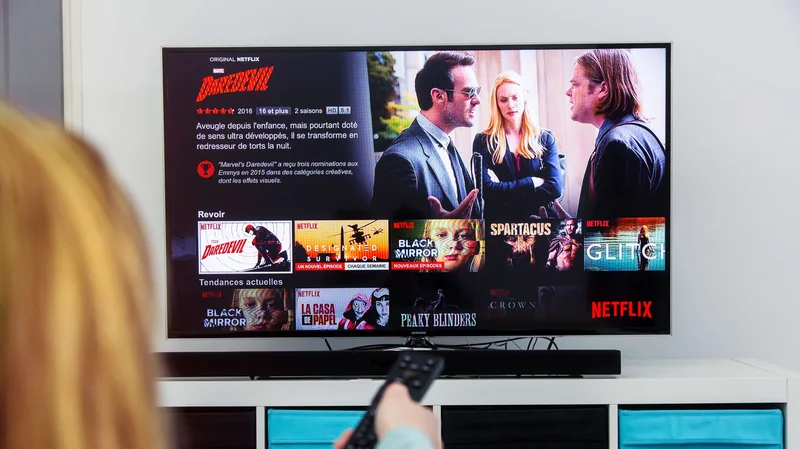Netflix Stock Price: Buying the Dip? Gimme a Break
Netflix's Stock Split: A Gambler's Paradise or Fool's Gold?
Alright, so Netflix is doing a 10-for-1 stock split. Big deal. We've seen this song and dance before. The suits in their ivory towers think this is going to magically make the stock more "accessible" to us little guys, the "retail traders." Give me a break.
The Illusion of Affordability
Let's be real: A stock split doesn't actually change anything fundamental about the company. It's like cutting a pizza into more slices – you still have the same amount of pizza. But, oh boy, the perception changes, doesn't it? Suddenly, owning a piece of Netflix doesn't require selling your car.
They're banking on the fact that we're all easily fooled by shiny objects. "Oh, look, a cheaper stock! I can finally afford to be a part of the Netflix empire!" Nevermind the fact that the overall value of your holdings remains exactly the same. It's basic math, people.
And here's the kicker: the data shows that stocks underperform in the short term after a split. We're talking about a measly 0.48% return in the two weeks following the split, which is less than the SPX average. So, basically, you'd have been better off just throwing your money at a generic index fund. Smart.
Stocks priced above $400 before the split declined 1.2% on average over the first two weeks after the split, with just 38% of them beating the SPX. What a joke. Buying Netflix 10-for-1 Stock Split? Expect Underperformance - Yahoo Finance
But hey, there's always a silver lining for someone, right?
The Long Game...Maybe
Now, before you accuse me of being a total Debbie Downer, there's a slight glimmer of hope. The data suggests that buying these high-priced stocks after the split has yielded an average return of 17.4% over the next year, compared to 9.8% for the SPX. Okay, that's... interesting.

But wait a minute. This analysis is based on data from about 310 stock splits going back to 2010. That's a decent sample size, sure, but how many of those companies were actually like Netflix? How many were in the same industry, facing the same competitive pressures, with the same... everything? Probably not that many.
Strategy (MSTR) split in August 2024 and nearly tripled over the next 12 months. Great, but that's one example. One data point does not a trend make. What was MSTR doing differently? What were the market conditions at the time? Did they just get lucky?
It's like saying you won the lottery once, so you're guaranteed to win again. Doesn't work that way, does it?
And offcourse, past performance is no guarantee of future results. You've heard it before.
The Retail Trader Trap
Here's what I think is really going on: This is a trap. A carefully orchestrated scheme to lure in the unsuspecting masses, the "dumb money," so that the big players can offload their shares at inflated prices. They're counting on our FOMO, our desire to get rich quick, to cloud our judgment.
They expect us to believe this nonsense, and honestly... maybe they're right. Maybe we are that gullible. Maybe we deserve to lose our shirts. Then again, maybe I'm the crazy one here. I mean, who am I to question the wisdom of Wall Street? Just some dude with a keyboard and a healthy dose of skepticism.
But I'm telling you, this whole thing smells fishy. It's like a used car salesman telling you that the engine is "practically brand new" while smoke billows out of the hood.
So, What's the Real Play Here?
Look, I'm not telling you what to do with your money. If you want to gamble on Netflix after the split, go for it. It's your money, your risk. But don't do it because you think it's a sure thing. Don't do it because you think you're getting some kind of special deal. Do it because you're willing to roll the dice and see what happens. Just don't come crying to me when you lose.
Tags: netflix stock price
GOOGL Stock: Berkshire's $4.3B Bet vs. Market Skepticism
Next PostDash: OpenAI Fixes ChatGPT's Em Dash Problem
Related Articles
